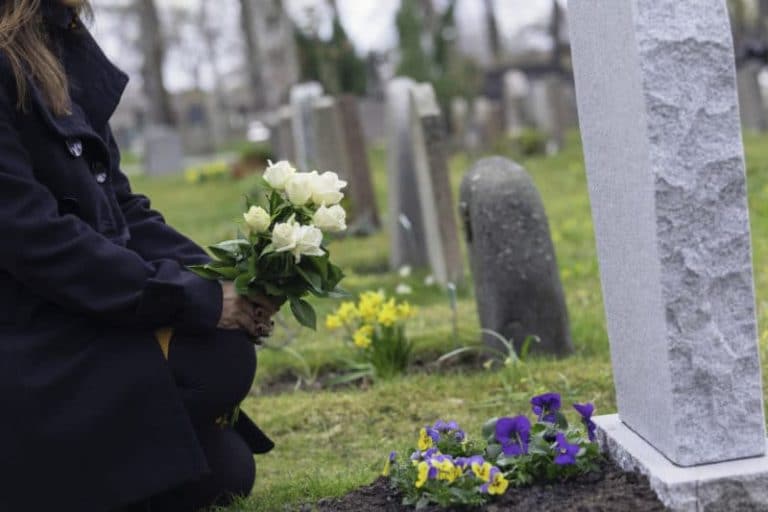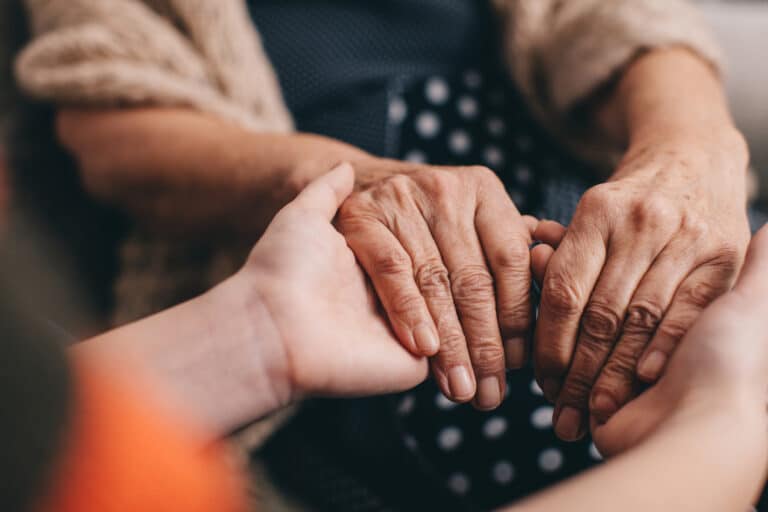Planning A Funeral or celebration of life After a Sudden Loss
Suddenly losing a loved one is difficult for the entire family and those left behind. Apart from the devastating loss, some things need to get done soon after the tragedy, including planning the funeral or celebration of life. It always helps to work with those who knew your loved one best and understand ways to help you fund this service. Here are some things to know during this challenging time.

Decide on the Type of Service and Burial
One helpful thing you can do to help get through the planning of a funeral is to take it one step at a time. The first step is deciding on what type of end-of-life ceremony and burial you want to hold for your loved one.
When a death is sudden, it’s common for family members to host a “celebration of life” on behalf of their loved one, which highlights the unique qualities and accomplishments of that person. Oftentimes, family members choose to hold a more intimate burial with only close friends and family, followed by the celebration of life as a separate and more open event. You can also choose to go a more traditional route with the funeral followed by a burial.
Do you need help filing a wrongful death claim? We can help. Contact us today for a free consultation.
Finding the Right Support
However you decide to put your loved one to rest, it’s essential to ask for support when you need it and work with compassionate communities and professionals who can assist you. For example, if you’re unsure of how to proceed, you can often find help from:
- Funeral homes
- Mortuaries
- Cremation service centers
- Cemeteries
- Church groups
- Online guides and resources
Most funeral homes, cremation service facilities, and cemeteries will have people there already familiar with the protocols of what needs to happen. If you have questions or need guidance, they are often the best people to turn to for help.
If you are part of a church or religious group, you can also find comfort and relief in these communities. They likely have support systems in place to help victims and families get through hard times.
You can also find several guides and resources online that provide families with the information they need after losing a loved one, including checklists, timelines, and local connections.

Paying for the Funeral Service
After your loved one’s physical remains are moved to the funeral home, you must think about the cost of the service, burial, and related expenses. Who will pay for it? What types of benefits can help cover these costs? Here are some options to consider.
1. Your Loved One’s Estate
Whatever assets or money your loved one left behind, it’s possible it can be used to reimburse the person who paid for the funeral and burial expenses. See what the estate can cover and use those funds first.
2. Victim’s Compensation Funds
If there was a criminal case connected to your loved one’s death, you and your family can work with the victim’s advocate assigned to the case. This person can help you understand the Victim’s Compensation Fund, access the money, and apply that to cover the cost of the funeral. The funeral home should also be familiar with the Victim’s Compensation Fund and can help you work through the process.
3. U.S. Military Benefits
Did your loved one serve in the military over the course of his or her life? If the answer is yes, the U.S. military can pay for the funeral, burial, or cremation expenses. You must pick from one of the 142 million nationwide cemeteries that qualify, and military burial benefits¹ will cover the funeral and burial expenses at that location.
4. Insurance Coverage
It’s also possible that your loved one had an insurance policy that would help cover funeral expenses. Look through important paperwork and check insurance policies for any indication of beneficiaries for life insurance. However, the designated beneficiary must file a claim to receive the money. Whether that person chooses to use those funds for the funeral is entirely up to them.
Are you a designated beneficiary? You may be entitled to compensation. Contact our team today for a free consultation about your case.
5. Car Insurance Policies
Was your loved one the victim of a car accident? Car insurance policies often include provisions for qualifying funeral expenses, even if the accident did not occur in their own vehicle. For example, if you lost a loved one while they were riding a bike or walking down the street and a car hit them, the claim may still apply up to the policy’s limit.
6. Arrange Payment Plans
If you are still struggling to cover the costs of funeral and burial expenses for your loved one, most funeral homes and cemeteries offer credit and payment plans. It’s common that decisions must be made quickly after you lose your family member, so these types of arrangements are essential to ensuring the process isn’t prolonged.
Compensation for Wrongful Death Claims
There is the possibility of filing a wrongful death claim after losing a loved one to an accident. If another person’s carelessness, negligence, or reckless behavior caused your family member’s death, you may qualify to file a legal claim for compensation.
Attorney Kyle Bachus and his Elite Litigation Group of experienced wrongful death lawyers can help you understand your legal options and whether you have a valid claim. Contact the team to schedule a free consultation or to learn more about wrongful death rights.

Sources:
¹National Cemetery Administration. U.S. Department of Veterans Affairs. Retrieved 23 June 2022.





